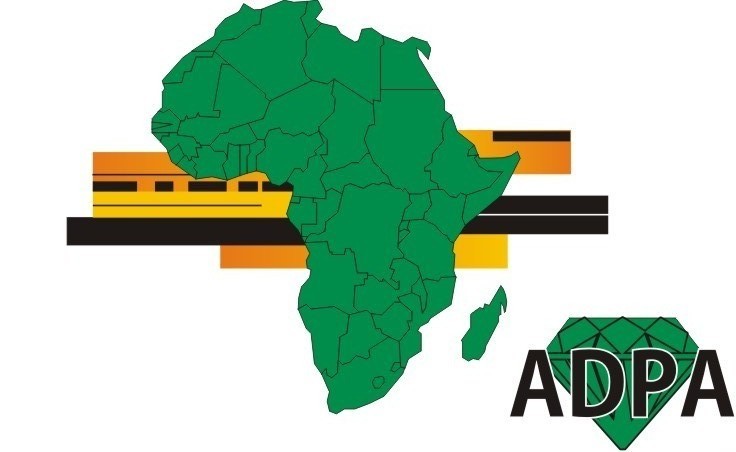 The African Diamond Producers Association (ADPA), which has openly registered its disdain for the G7’s rough diamond trade restrictions, is of the opinion that the move will bring extra costs on all stages, from mining to retail.
The African Diamond Producers Association (ADPA), which has openly registered its disdain for the G7’s rough diamond trade restrictions, is of the opinion that the move will bring extra costs on all stages, from mining to retail.
ADPA executive director Ellah Muchemwa said the extra costs emanate from the introduction of unilaterally longer and more complicated procedures for processing trade transactions, especially cross-border ones, including difficulties with bank payments and financing, insurance, and logistics.
She said if natural diamond prices go up due to increased costs and artificially restricted supply, that will impact the wallets of end consumers negatively and force consumers to purchase cheaper alternatives like laboratory-grown diamonds, thereby accelerating the decreased demand for the natural diamond market and directly impacting the economies of diamond-producing countries.
Read more of Muchemwa’s commentary on the G7 restrictions below.
What are the consequences of the G7 and European Union initiatives on the diamond industry?
The expedited restrictions by the G7 and the European Union threaten to have negative direct and indirect economic consequences to the diamond industry throughout the supply chain from mine to finger, resulting in a ‘lose-lose situation’ for all.
This is happening against the backdrop of a global macroeconomic downturn exerting pressure on the sales of diamonds that have already resulted in an inventory build-up and up to double-digit price reduction for key sizes across the board since 2023.
How will the G7 measures impact the turnaround time of processing and transacting diamond business?
These factors will increase the turnaround time of processing and transacting diamond businesses, disrupting the industry's production cycle and profits.
The negative impact is more obvious in the case of creating a single node bottleneck that needs to be passed at every stage of the diamond's transformation with no clear understanding of how the verification will be done on the first rough diamond, then the same polished diamond derived by said rough diamond, then same diamond set in a jewellery piece.
What is the net effect of the G7 restrictions on market competition?
The G7 restrictions raise questions and concerns of unfair market competition where the advantage will be given to members of the G7, which are rough diamond producers that are exempt from any additional verification, financial, turnaround time, and paperwork costs.
What is the disadvantage of using one certification solution over the other?
Non-commercial practices of "appointing" nodes and privileging one technical/certification solution over another result in costly blockchain outcomes for big companies and multinational brands. The absence of proven economic effects over the past years has raised serious antitrust concerns about unfair competition.
What will happen to countries or artisanal miners who cannot immediately introduce new certification and verification mechanisms?
Diamond-producing countries, especially those with artisanal and small-scale mining and those who cannot immediately introduce new certification and verification mechanisms, will also face new undue pressures on the price of their diamonds from retailers to avoid managing "extra" risks.
Artisanal and small-scale mining notably makes a major contribution to global rough diamond production — estimated at 15-20% of rough diamond supply by carat and 5 -10% by value.
This sector is also a major contributor to livelihoods in sub-Sahara Africa, with approximately 1,5 million miners directly involved in diamond production and an estimated 9 million dependents benefitting indirectly from the sector.
Do you agree with the argument that G7-certified diamonds will be sold at a premium?
The narrative that this would allow for "G7-certified" goods to be sold at a premium as a "new normal" is false. It is estimated that increased costs and time will diminish the profits of the midstream close to zero but will not increase the price of polished goods achieved in the long run.
If natural diamond prices go up due to increased costs and artificially restricted supply that will impact the wallets of end consumers negatively and force consumers to purchase cheaper alternatives like laboratory-grown diamonds (LGDs), thereby accelerating the decreased demand for the natural diamond market and directly impacting the economies of diamond-producing countries.
Natural diamonds have a certain buy-back appeal in comparison with LGDs with a potential huge shadow market, this advantage can also go away as no answers are given to the questions of how to handle grandfathered goods and turnover of diamonds on second-hand markets.
What are the unintended consequences of the G7 diamond certification?
The unintended consequences will negatively impact natural rough diamond producers, as it is expected that retailers will pressure manufacturers to purchase polished diamonds cheaper, and then manufacturers will pressurise the natural rough diamond producers to sell cheaper to counter the costs of additional certification measures and the introduction of traceability technology.
Mathew Nyaungwa, Editor in Chief of the African Bureau, Rough&Polished
